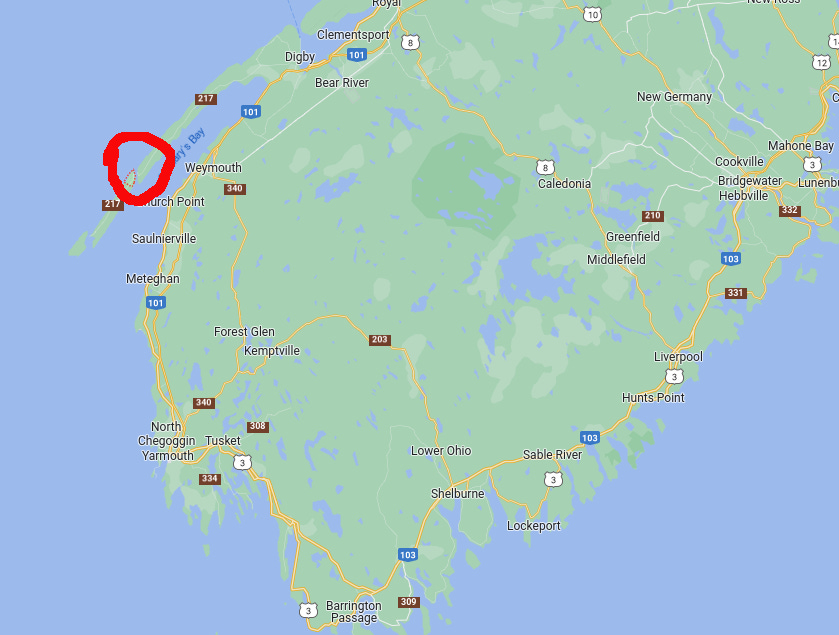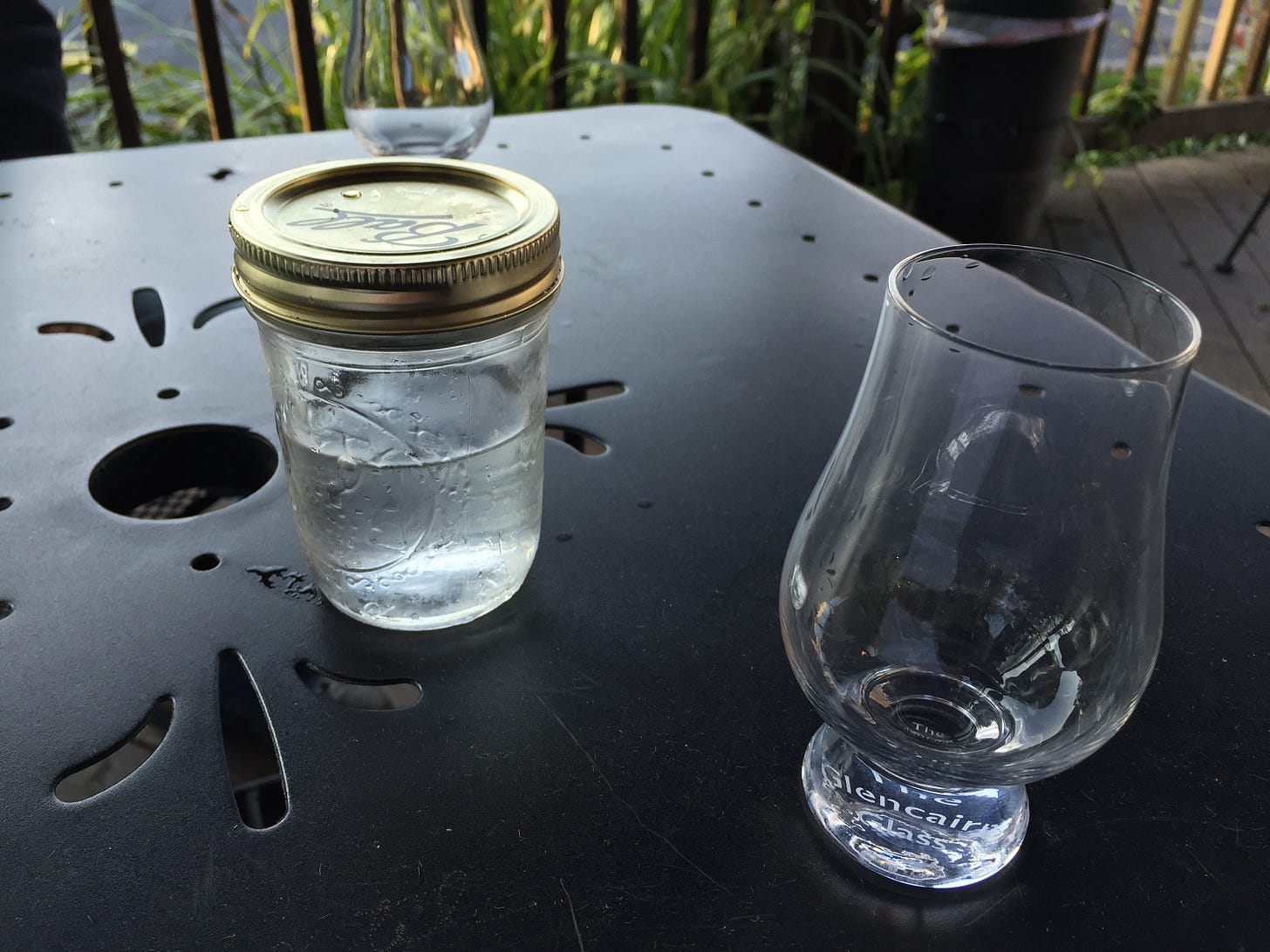This week I had cause to write to an acquaintance down in Kentucky. I was asking for a favour on behalf of another writing workshop participant who has a story about the removal of the statue of John C. Breckinridge at Cheapside Market in Lexington.
The response, in the affirmative, included the following:
If you run into any Cossabooms around Tiverton, they’re probably my kin. My mothers East Tennessee father married the daughter of a Tiverton man. We visited around 2004.
We’ve yet to visit Tiverton, but it sure looks like it’s worth a trip.
All of this has me thinking back to living in Appalachian Kentucky, the things that I learned there, and how similar it is to rural Nova Scotia.
This happened while we hunkered down for a first real Nova Scotia winter storm. With our house located a couple of hundred meters from the Atlantic Ocean on three sides we got the full force of the wind, the snow, and the experience of watching our windows slowly become covered with snow and ice.
I have to admit that after decades in Vancouver, where every snowfall of more than an inch sends the entire city into a panic, it was wonderful to see how Nova Scotia handles a great big dump of the white stuff: lots of plows, lots of salt, and carry on as usual. Montreal the week before was the same.
The honest truth is that by the standards of much of Canada, Nova Scotia is relatively poor. People have jobs, and homes, and cars and trucks, so it’s not the classic “homeless on the streets” poverty.
Instead it’s a place where the Irvings and NS Power make massive profits, but things that I consider essential are hard to find. Art and culture for example just aren’t a priority for the government of this province. Health care surely is at the bottom of list for investments and spending, and one-tenth of the population is on the official government waiting list for a family doctor. The norm is that emergency departments are only open a few hours each day.
And of course, like most of Canada, the quiet goal is to move some or all of the medical system into the hands of private corporations.
Then there’s food. I’ve shopped in big cities and small, in three or four different countries, and have never seen supermarkets with such a dismal choice. Both the local Sobeys and the Superstore are literally selling fruit and vegetables that in most places would have been composted or just tossed in the trash.
The choices for anything other than multi-national pre-packaged food is dismal, and most of what’s on sale feels like 1980s shopping to me. Mostly though it all feels terribly unhealthy, and terribly expensive. My sense is that a weekly shop in Liverpool is about 25 to 30% more expensive than in Vancouver despite the horrid selection and quality.
Even more surprising, and this really baffles me, is that it’s pretty much impossible to buy good looking fresh fish in a town that is literally on the edge of the Atlantic fishing grounds, and which is actually home to fishing boats. In any landlocked town in the middle of France you’ll get a wide selection of amazing fresh fish, dozens of choices. Here you see tired looking haddock and salmon, and a tank of live lobsters.
All of this leads to two things, just as it did in Kentucky. The first is a decidedly unhealthy diet. It often struck me that the soup beans and heavy, heavy meals that I ate in Kentucky would have made sense if you were working ten hours a day in the coal mines, but once coal mining stopped being the big employer it just made people heavy and unhealthy. I have never seen more people suffering from “the sugar,” or diabetes.
Poor diet and poor health care always lead to shortened life expectancies and long term illness. The trick for government is to convince people that this normal, and unavoidable, and that there’s nothing to be done.
The other side of this equation though is self-sufficiency. People hunt. They have gardens. They have chickens and their own eggs. Because they don’t have the extra income, they do their own repairs to cars and houses. They build stuff. They create little niche occupations on the side.
Admittedly it’s not quite as far as in Kentucky, where there was actually a guy who, with no medical training and no licence, did neutering of dogs for a very good price.
What all of this do-it-yourself work does though is turn into a large, unregulated economy. Because a lot of work is done by untrained or self-trained people there’s a greater chance that something essential will be missed. If the guy putting in your floor has that kind of issue it’s not the end of the world. If they’re putting in a new well, or wiring your house it’s different thing.
Ultimately this should be a concern for the Nova Scotia government. Surely they’re missing out on a massive amount of tax income from unregulated and undocumented business, but there’s also no way for them to ensure that houses are built safely and securely, that cars are fit to drive, or that workers are getting proper training and safety rules.
As much as we like to mythologise the back-to-the-land crowd, and the do-it-your-selfer, and as much as we applaud the guys who work around rules and regulations and supposedly unnecessary government red tape, the fact remains that some times these guys aren’t all that good, and sometimes their lack of knowledge or even care leads to disaster.
However, despite all of that, I really would love a jar of good old Kentucky moonshine….






